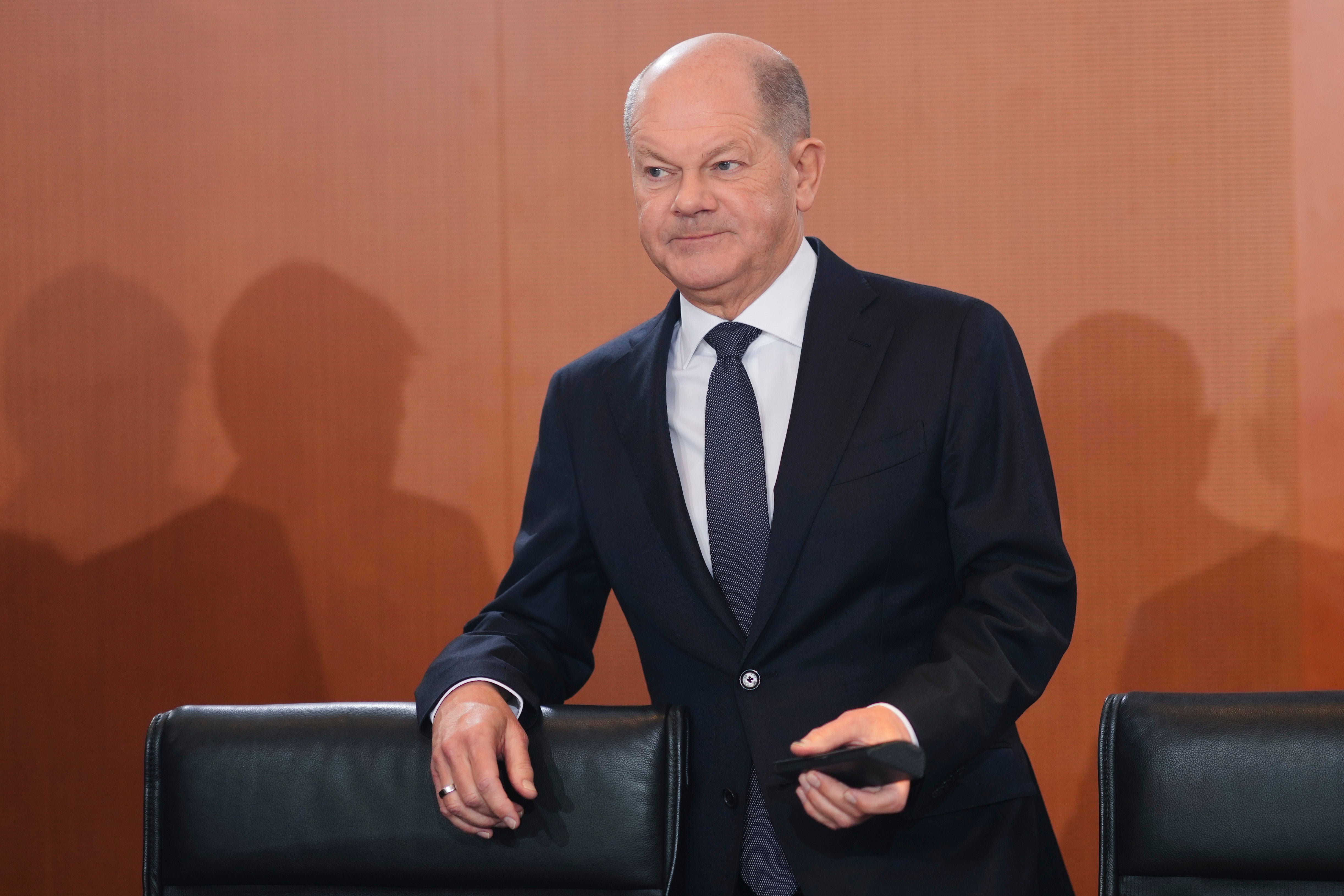Germany set for snap election after vote of no confidence in leader Scholz
The ruling coalition fell apart last month after the chancellor dismissed his finance minister. An election is now expected in late February

German chancellor Olaf Scholz has lost a confidence vote – putting the European Union’s most populous member and biggest economy on course to hold an early election in late February.
Mr Scholz won the support of 207 MPs in the 733-seat lower house, or Bundestag, while 394 voted against him and 116 abstained. That left him far short of the majority of 367 needed to win.
Mr Scholz leads a minority government after his unpopular and notoriously rancorous three-party coalition collapsed in November when he dismissed his finance minister in a dispute over how to revitalise Germany’s stagnant economy.
Leaders of several major parties then agreed that a parliamentary election should be held on 23 February, seven months earlier than originally planned.
The confidence vote was needed because post-Second World War Germany’s constitution does not allow the Bundestag to dissolve itself.
President Frank-Walter Steinmeier has to decide whether to dissolve parliament and call an election. He has 21 days to make that decision and, because of the planned timing of the election, is expected to do so after Christmas. Once parliament is dissolved, the election must be held within 60 days.
In practice, the campaign is already well underway, and Monday’s three-hour debate reflected that. Mr Scholz, a centre-left Social Democrat, told MPs that the election will determine whether “we, as a strong country, dare to invest strongly in our future”, asking: “Do we have confidence in ourselves and our country, or do we put our future on the line? Do we risk our cohesion and our prosperity by delaying long-overdue investments?”
His pitch to voters includes pledges to “modernise” Germany’s strict self-imposed rules on running up debt, to increase the national minimum wage, and to reduce VAT on food. Centre-right challenger Friedrich Merz accused Mr Scholz of “leaving the country in one of its biggest economic crises in post-war history”.
“You’re standing here and saying, business as usual, let’s run up debt at the expense of the younger generation, let’s spend money, and the word ‘competitiveness’ [in relation to] the German economy didn’t come up once in the speech you gave today,” Mr Merz said.
The chancellor said that Germany is Ukraine’s biggest military supplier in Europe, and that he wants to keep that up, but he underlined his insistence that he will not supply long-range Taurus cruise missiles, because of concerns about escalating the war with Russia, or send German troops into the conflict.
“We will do nothing that jeopardises our own security,” he said. Mr Merz, who has been open to sending the long-range missiles, said that Germany didn’t need “any lectures on war and peace” from Mr Scholz’s party.
He said, however, that the political rivals in Berlin are united in an “absolute will to do everything so that this war in Ukraine ends as quickly as possible”.
Polls show Mr Scholz’s party trailing well behind Mr Merz’s main opposition Union bloc, which is in the lead.
Germany’s vice-chancellor, Robert Habeck, of the environmentalist Greens, the remaining partner in Mr Scholz’s government, is also bidding for the top job, although his party is further back in the polls.
The far-right Alternative for Germany (AfD), which is polling strongly, has nominated Alice Weidel as its candidate for chancellor, but has little chance of its candidate taking the job because other parties refuse to work with it.
Germany’s electoral system traditionally produces coalitions, and polls show no party anywhere near an absolute majority on its own.
The election is expected to be followed by weeks of negotiations to form a new government.
Confidence votes are rare in Germany: this was only the sixth time in its post-war history that a chancellor had called one. The last was in 2005, when the then chancellor Gerhard Schroeder engineered an early election that was narrowly won by centre-right challenger Angela Merkel.
Associated Press
Join our commenting forum
Join thought-provoking conversations, follow other Independent readers and see their replies
Comments
Bookmark popover
Removed from bookmarks